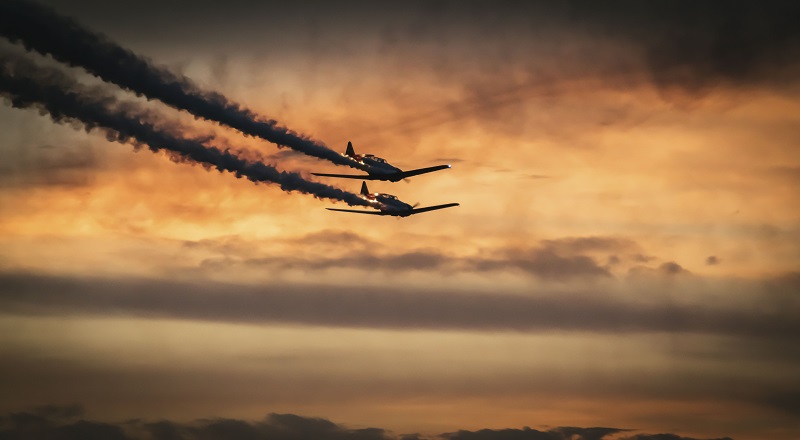Postgraduate courses in Aviation
Aviation is an area that takes a great amount of knowledge, work, study and stamina. As a pilot you will need to work hard to gain your PPL (Private Pilot License) and then your ATPL (Airline Transport Pilot’s License) before you can advance and apply to work with an airline.
There are many different types of pilots that are not just with commercial airlines such as pilots in the Air Corps and pilots transporting medical supplies.
Aside from pilots, there are many other positions you can work in within aviation where a postgraduate degree would help in developing your knowledge to carry out the best performance you can.
What is aviation?
Put very simply, aviation is the flying or operating of an aircraft. It also refers to the activities and areas related to flight such as air traffic control. There are different types of aviation from medical transport and personal travel to commercial travel and search and rescue. Aviation plays a large role in multiple sectors and is very important in areas such as health, tourism, geography and law enforcement.
Duties of a pilot
One of the more obvious jobs in relation to aviation is the pilot. While it takes an army of people to ensure the aircraft is ready to fly, safety precautions are taken outside the aircraft and so on, we will look into the job of an airline pilot, to give you an idea of what is involved.As an airline pilot, your working hours will depend on the flight schedule and can be anything from late night flights to early morning flights.
The day to day duties of a pilot may change but common duties carried out include:
- Create flight plans using information such as altitude, fuel and the route you will follow
- Ensure you have all information such as passengers and weather
- Ensure aircraft has enough fuel, supervise fuelling
- Ensure all safety measure and precautions are carried out and all systems and equipment are working properly
- Keep in regular contact with cabin crew before and throughout flights
- Pre-flight safety checks
- Understand instrument use and data it supplies
- Communicate with passengers keeping them updated on time of arrival, how the flight is going, turbulence etc
- React quickly and calmly to emergencies or changes along the way
- Keep and update logbook
- Write a report after each flight – problems, how it went, challenges
- Carry out regular checks on the aircraft
Courses
There are many courses to choose from across the UK. Some courses offer the opportunity to study either part time or full time. There may also be guidelines and rules in place due to Covid-19. Some courses available in this area include:
Aviation Management in the Digital Age
Postgraduate courses in this area allow students to establish a career in civil aviation and make sure they are up to date with all new and relevant information and knowledge. Students will focus on e-knowledge and e-strategies for managing the aviation system in today’s world. You will also gain research and analytical skills as well as gain advice on future career prospects.
International Aviation Regulation and Law
Courses in this area equip students with a great understanding of how regulation and law is developed, implemented and reviewed. They will also gain an understanding of how to develop organisational standard operating procedures and be sure they comply with relevant regulatory and legal frameworks.
Other courses available include Aviations Management for Professionals, Business Management, Aviation and Security and International Tourism and Aviation Management, to name a few.
Entry requirements
Entry requirements will differ from course to course and university to university so it is important to research your particular course in detail to ensure you meet the criteria to apply. You will need a bachelor’s degree to apply for almost all courses. Some may require a 2.2 degree while others may require a 2.1 degree. Full course overviews can be found online for more information.
Salary
Salaries can differ depending on your specific job. It is important to note that, as a pilot, your salary may vary depending on the aircraft you’re flying or the company you work for. On average, it is believed that the salary of an aircraft pilot starts out around £24,000. First officers may earn between £36,000 to £48,000 while captains can earn up to £140,000. As an air traffic controller, you could usually earn up to £41,253. Seniority can also impact these wages. These figures are based on estimates and are intended to be used as a guide only.
Skills and requirements
Skills that can be helpful in this area include:
- Strong communication skills
- Critical thinking skills
- Ability to remain calm under pressure
- Strong people skills
- Positive attitude
- Ability to work well with others
- Leadership skills
- A strong work ethic
- Flexible
- Trustworthy and reliable




